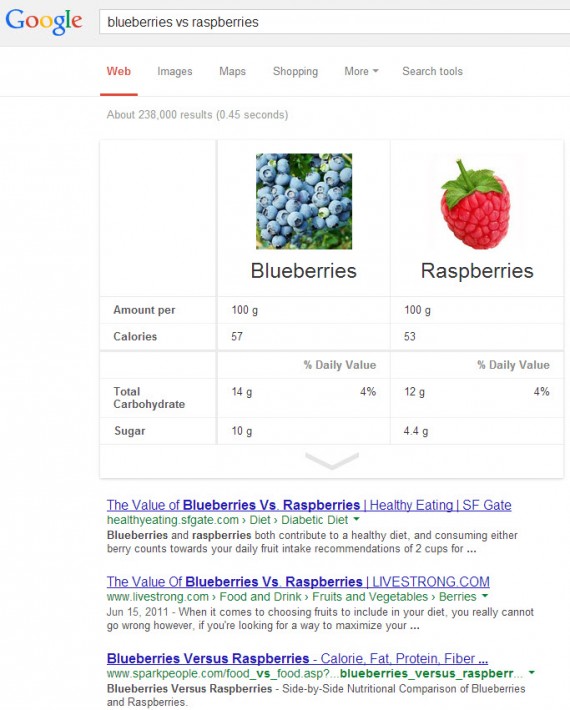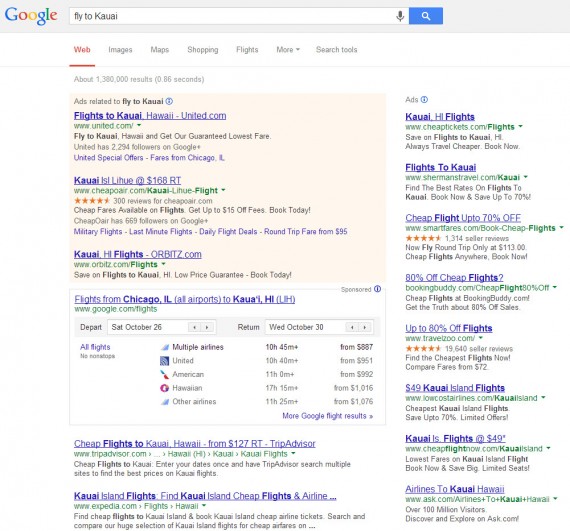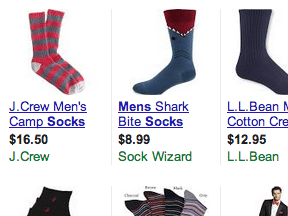Google released its Hummingbird search algorithm under the radar in August. Hummingbird reportedly impacts 90 percent of all search queries. So how does Hummingbird change the game for ecommerce sites?
With Hummingbird, Google is striving for greater speed and accuracy. A big part of accurate results is understanding the searcher’s intent to start with, especially as more searches lean toward the conversational. Google feels that searchers are looking for answers, and they tend to phrase certain types of searches as questions or complex phrases rather than a simple list of keywords.
As a result, Hummingbird has been designed to handle complex queries and natural language: parsing the meaning behind phrases as a whole rather than individual words within a search query.
In addition, Google aims to display more answers directly on the search results page rather than requiring searchers to click on a result to get their answer. To this end, with the Hummingbird announcement on August 23, Google also announced new features like Knowledge Graph comparison charts.
For example, try searching for “blueberries vs raspberries,” as shown in the example above. A chart appears at the top of the search results illustrating the comparable data points between the two fruits. Many of the triggering phrases for this feature are nutritional in nature at this point, and most of the sites ranking for these phrases are informational as opposed to ecommerce, but the same feature could certainly be applied to ecommerce comparisons.
Knowledge Graph for Products
Google could offer a Knowledge Graph comparison chart for searches containing two similar products — say, the Samsung Galaxy S4 and the iPhone 5. Today’s organic search results for “Samsung Galaxy S4 vs iPhone 5” are news- and review-focused. But it’s not a stretch to imagine a chart like the one above showing berries, instead comparing the specs for Samsung Galaxy S4 and the iPhone 5, complete with options for purchase. Specs for electronics make excellent chart fodder. For other products like clothing that are light on specs, reviews data and social data could be pulled in to complete the picture.
Google already inserts ecommerce into the Knowledge Graph in some instances. A search for “Ferris Bueller” reveals a link in the Knowledge Graph to buy the popular movie in the Google Play store. Searching for “Kauai guidebook” returns a Knowledge Graph featuring Andrew Doughty’s book with review information and links to purchase from major etailers.
Google has been doing this for years now with movies, travel, books, online video, mobile apps, and other ecommerce areas. In some cases, Google becomes an ecommerce player itself. Google creates new search result boxes, filled with Google-hosted content monetized with ad dollars. Searchers are drawn to the prominently featured boxes, and Google earns its fee when the searcher moves to the ecommerce site to complete the transaction.
Going to Kauai?
Consider the example of the travel industry. A search for “fly to Kauai” prompts the interface below, which features a Google Flights box at the top of the organic search listings. Some portion of the traffic and bookings that formerly went to travel sites or the airlines themselves now flows through Google Flights first — billed as a service to help searchers find their information more quickly, while it also earns Google additional revenue.
Google Flights illustrates one of the bigger steps in Google’s path to monetizing data across different industries. Before Google Flights, travel aggregators like Expedia and Travelocity ranked in organic search. They still rank well, but Google Flights trumps them all thanks to its integration into Google web search.
More Industries, Information Types
Expect this trend to grow to encompass more industries and information types. As data across more industries can be assimilated and expressed through Google search features, the number of searchers that find their way to ecommerce sites via purely organic search means will decrease.
Hummingbird emerges as the rebuilt engine to drive the speed and accuracy this evolution will require. It is the most dramatic algorithm change since 2001, according to Amit Singhal, senior vice president of Google’s core ranking team. If you think of algorithm updates as regular maintenance on a car’s engine to improve its performance, the Hummingbird algorithm release is more like rebuilding the engine from scratch.
Naturally the details Google is willing to provide on Hummingbird are sketchy, but it consists of new technology integrated with some of the pieces that are still working well for Google. For example, the Penguin link-spam algorithm saw a big update affecting one percent of search queries last Friday. Clearly Google has retained some of its recent breakthroughs within its new Hummingbird algorithm framework.






